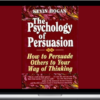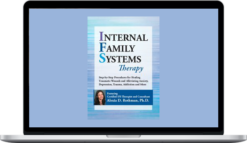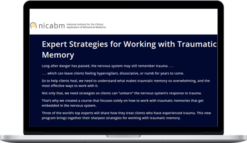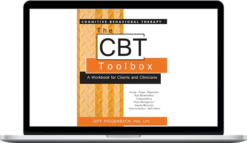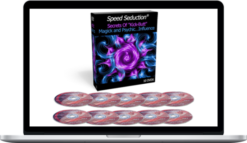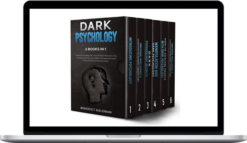Centre of Excellence – Psychology Diploma Course
$177.00 $30.00
»Within 1 – 7 days
Description
Centre of Excellence – Psychology Diploma Course
Description Of Psychology Diploma Course

Psychology is not only a science and a profession but its concepts can also be used in everyday life. Studying this online Psychology Diploma will provide you with greater knowledge of feelings, abilities and personalities.
Most students also find that they gain a greater satisfaction within their job, their family and social life.
Psychology represents a way of thinking. It’s a science that demands researchers to ask precise questions about a particular issue and then to test their ideas through systematic processes.
Psychology is not easily defined. It’s a term that encompasses a broad spectrum of matters in research and practical applications.
It is what scientists and philosophers of various affiliations created to try to fulfil the need to understand the minds and behaviour of various living beings from the very primitive to the most complex. From its roots in philosophy and physiology, psychology is now often known as the ‘science of the mind.’
Your initial answer to this question will likely be quite different to the picture of psychology that will emerge as you work your way through this course. You may be surprised to find that psychology is much greater than analysing people or formulating psychological diagnoses to emotional problems.
It’s also about how people are able to see colour, how stress affects our biological processes and why babies become distressed when separated from their caregiver.
What you’ll learn in Psychology Diploma Course
Course Syllabus
What will I learn on the course?
Module 1: What is Psychology?
- Part 1: History of Psychology
- Part 2: Key Themes Related to Psychology
- Test Your Knowledge
- Key Learning Points Exercise
- Module 1 Assessment
Module 2: Different Approaches to Psychology
- Part 1: Developmental Psychology
- Part 2: Social Psychology
- Test Your Knowledge
- Key Learning Points Exercise
- Module 2 Assessment
Module 3: Research in Psychology
- Part 1: Research in Psychology
- Part 2: Variables
- Test Your Knowledge
- Key Learning Points Exercise
- Module 3 Assessment
Module 4: Human Emotion
- Part 1: Human Emotion
- Part 2: The Biological Component of Emotion
- Test Your Knowledge
- Key Learning Points Exercise
- Module 4 Assessment
Module 5 : Stress and Anxiety
- Part 1: Stress and Anxiety
- Part 2: Causes of Anxiety
- Test Your Knowledge
- Key Learning Points Exercise
- Module 5 Assessment
Module 6: Personality
- Part 1: Personality
- Part 2: Personality Theories
- Test Your Knowledge
- Key Learning Points Exercise
- Module 6 Assessment
Module 7: Sensation and Perception
- Part 1: Sensation and Perception
- Part 2: The Psychophysical Approach
- Part 3: Factors Affecting Perception
- Test Your Knowledge
- Key Learning Points Exercise
- Module 7 Assessment
Module 8: Our Sensory System
- Part 1: Our Sensory Systems
- Part 2: The Auditory System
- Test Your Knowledge
- Key Learning Points Exercise
- Module 8 Assessment
Module 9: How Do We Remember?
- Part 1: How Do We Remember?
- Part 2: Forgetting
- Test Your Knowledge
- Key Learning Points Exercise
- Module 9 Assessment
Module 10: Intelligence
- Part 1: Intelligence
- Part 2: Intelligence Testing
- Test Your Knowledge
- Key Learning Points Exercise
- Module 10 Assessment
Module 11: Classical and Operant Conditioning
- Part 1: Classical and Operant Conditioning
- Part 2: Operant conditioning
- Test Your Knowledge
- Key Learning Points Exercise
- Module 11 Assessment
Module 12: Applications of Operant Conditioning
- Part 1: Applications of Operant Conditioning
- Part 2: Devise your own Behaviour Modification Program
- Test Your Knowledge
- Key Learning Points Exercise
- Module 12 Assessment
Module 13: Other Kinds of Learning
- Observational Learning
- Test Your Knowledge
- Key Learning Points Exercise
- Module 13 Assessment
Module 14: Attachment and Separation
- Part 1: Attachment and Separation
- Part 2: Patterns of Attachment
- Part 3: Summary
- Test Your Knowledge
- Key Learning Points Exercise
- Module 14 Assessment
Module 15: Parent–Child Interaction
- Part 1: Maternal Depression
- Part 2: Trauma and Loss
- Part 3: Parent- Child Interventions
- Test Your Knowledge
- Key Learning Points Exercise
- Module 15 Assessment
Module 16: Sexual Development and Gender Identity
- Sexual Development and Gender Identity
- Test Your Knowledge
- Key Learning Points Exercise
- Module 16 Assessment
Module 17: Social Psychology and the Individual
- Part 1: Impressions of People
- Part 2: Cognitive Schemas
- Part 3: Self and Identity
- Test Your Knowledge
- Key Learning Points Exercise
- Module 17 Assessment
Module 18: Prejudice and Discrimination
- Part 1: Prejudiced Attitudes
- Part 2: Discriminatory Behaviour
- Part 3: Theories of Prejudice and Discrimination
- Test Your Knowledge
- Key Learning Points Exercise
- Module 18 Assessment
Module 19: Attitudes and Persuasion
- Part 1: Attitudes and Persuasion
- Part 2: Communication and Persuasion
- Test Your Knowledge
- Key Learning Points Exercise
- Module 19 Assessment
Module 20: Conformity and Obedience
- Part 1: Conformity
- Part 2: Obedience
- Test Your Knowledge
- Key Learning Points Exercise
- Appendix 1 – How to Write a Psychology Essay
- Appendix 2 – How to Reference Using APA Guidelines
- Module 20 Assessment
Who Would Benefit from This Psychology Diploma Course?

On completion of this course, students will have developed the following:
Increased knowledge base of the major concepts, theoretical perspectives, empirical findings, and historical trends in psychology.
Understanding of basic research methods in psychology
Develop and use critical and analytical skills
Problem solving skills
Communication skills
Ability to work autonomously
An awareness of the applications of psychology
About Centre of excellence
Here at Centre of Excellence we are supremely proud to be at the heart of a vibrant community of hard-working students. The determination and enthusiasm of our students never ceases to impress us and there is nothing better than seeing our graduates go on to succeed in further education, work, business or just life in general!
More courses from the same author: Centre of excellence
Delivery Policy
When will I receive my course?
You will receive a link to download your course immediately or within 1 to 21 days. It depends on the product you buy, so please read the short description of the product carefully before making a purchase.
How is my course delivered?
We share courses through Google Drive, so once your order is complete, you'll receive an invitation to view the course in your email.
To avoid any delay in delivery, please provide a Google mail and enter your email address correctly in the Checkout Page.
In case you submit a wrong email address, please contact us to resend the course to the correct email.
How do I check status of my order?
Please log in to HealingCourse account then go to Order Page. You will find all your orders includes number, date, status and total price.
If the status is Processing: Your course is being uploaded. Please be patient and wait for us to complete your order. If your order has multiple courses and one of them has not been updated with the download link, the status of the order is also Processing.
If the status is Completed: Your course is ready for immediate download. Click "VIEW" to view details and download the course.
Where can I find my course?
Once your order is complete, a link to download the course will automatically be sent to your email.
You can also get the download link by logging into your HealingCourse account then going to Downloads Page.
Related products
Total sold: 3
